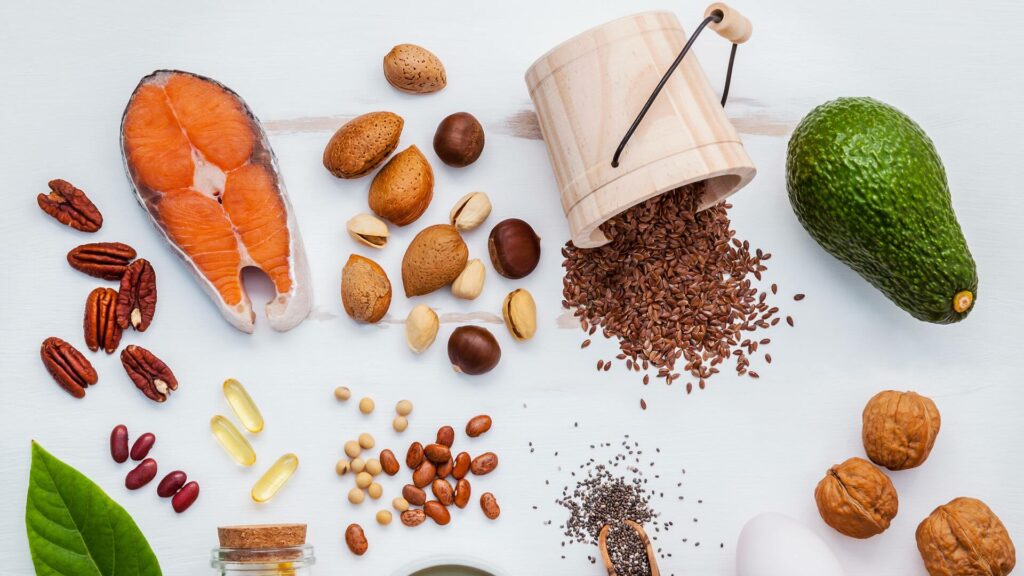In today’s world, successful ageing is about living a long and healthy life without suffering from the usual problems that come with getting older. It depends on your genes, lifestyle choices, and the society we live in. Decisions about exercise, smoking, drinking, and what you eat all play a part. One important factor in staying healthy as you age is getting enough B vitamins. These vitamins do many jobs in the body, like helping to turn food into energy, keeping genes working right, and supporting the immune system. When one does not have enough B vitamins, it can lead to a range of health problems, from memory issues to heart disease.
As the world’s population gets older, it is important to find ways to help older people stay healthy. Improving diet and making sure enough B vitamins are consumed, could be a key part of that effort. Ageing well isn’t just good for people, it is important for public health. It can help lower the costs of treating diseases that are more common in older people. So, keeping people healthy as they age is an important goal for everyone.
Vitamin B1 (thiamine), is crucial for the body. It is found in whole grains, legumes, nuts, seeds, pork, yeast, liver, fish, eggs, some vegetables. It helps the nerves work, makes important substances like neurotransmitters, and supports the heart and brain. Not having enough of it can lead to problems like anxiety, mood issues, affects the brain, heart troubles, inflammation, damage to nerves and can contribute to age-related diseases like dementia, Parkinson’s, Alzheimer’s, and Huntington’s disease. So, making sure there is enough vitamin B1 is important for the brain and overall health.
Vitamin B2 also known as riboflavin, helps to turn food into energy and iron levels in order. It is found in eggs, legumes, nuts, seeds, whole grains, mushrooms, leafy green vegetables, fish, dairy products, and meat. Not having enough vitamin B2 can lead to problems like anaemia, inflammation, glossitis, skin rashes, memory issues, personality changes, and irritability.
Vitamin B3 also known as niacin, is important for the body because it helps to break down food, helps to fix DNA in the cells, manages cholesterol, reduces inflammation and it is important for the proper functioning of the digestive system, the nervous system, and the brain. Not having enough vitamin B3 is linked to cognitive and mood disorders, neurological symptoms, and skin problems. It is found in meat, fish, dairy, eggs, legumes, whole grains, and some vegetables (mushrooms, avocados, potatoes)
Vitamin B4 is more commonly called choline, and although it is not classified as a vitamin, it is important for the proper functioning of the brain. During pregnancy it is crucial for the healthy development of the baby’s brain and nerves. Low levels of choline are linked to Alzheimer’s disease. Some studies have shown that taking choline supplements could help with memory and cognitive function, especially in people with Alzheimer’s disease. Choline is found in eggs, meat, fish, dairy, legumes, nuts, seeds, some vegetables, avocado and whole grains
Vitamin B5 is also called pantothenic acid, is crucial for the body’s energy production and various metabolic processes. It helps with the breakdown of fats, it is important for the production of certain hormones, and plays a role in the development of the nervous system. Not getting enough vitamin B5, although rare, can lead to symptoms like fatigue, irritability, trouble sleeping, nausea, stomach cramps, and even depression. Foods that contain vitamin B5 include, meat, fish, eggs, dairy, legumes, whole grains, avocado, broccoli, nuts, mushrooms. Over time, people have searched for ways to live longer. Some studies suggest that vitamin B5, found in royal jelly, might play a role. For example, it made fruit flies and mice live longer in experiments. However, whether it’s the vitamin B5 or other substances in royal jelly that extend lifespan isn’t entirely clear and needs more research.
Vitamin B6 comes in different forms. It helps with things like making neurotransmitters (for mood and brain function), breaking down amino acids, and regulating hormones. Vitamin B6 may also help fight the ageing process, by interacting with certain sugars in the body. Without this interaction, the sugars on their own create compounds that could lead to age-related issues such as, cataracts, arthritis, and heart problems. Therefore, vitamin B6 is required to stop this. Low levels of vitamin B6 can lead to problems like depression, irritability, seizures, migraines, and confusion. Foods that contain vitamin B6 include chicken, fish, meat, beans, legumes, whole grains, nuts, seeds, bananas, potatoes, avocado, spinach.
Vitamin B9 is also called folate, and plays a crucial role for cells to work correctly and divide properly. In the brain, folate helps with the regulation of certain chemicals that affects mood and behaviour. If there is not enough folate in the body, it can lead to problems like anaemia, confusion, weakness, depression, and dementia. In pregnant women, folate deficiency can harm the developing baby, potentially causing birth defects. Other research has found that vitamin B9 is important in preventing stroke, and in certain countries where folate has been added to foods, the number of people dying from strokes have decreased. Foods that naturally contain folate are leafy greens (kale, turnip), legumes, asparagus, avocado, citrus fruit, broccoli, brussels sprouts, nuts, and seeds.
Vitamin B12 is helps with nerve cell function, makes new cells, and breaks down fats and proteins to make energy. When not enough vitamin B12 is in the diet, a person will feel tired, have mood swings, depression, thoughts of self-harm, develop megaloblastic anaemia, have tingling sensations in the limbs or soreness in the mouth and tongue. Vitamin B12 is mainly found in animal-based foods, meet, chicken, fish, seafood, dairy products, and eggs. If a vegetarian or vegan diet is followed, it’s important to ensure enough B12 is consumed through fortified foods or vitamin supplements since it is mainly found in animal products.
Overall, vitamin B plays an important role in staying healthy as we age. As we age, our bodies may have a harder time absorbing these vitamins, making it important to ensure enough is consumed through a balanced diet or supplements if needed. Consulting a healthcare professional or registered dietitian can help plan a balanced diet that meets the vitamin B needs in the diet.









